
Roman Ghosts
at Glyptoteket in Denmark
Ghosts at Glyptoteket
June 17th 2014 I visited the museum Glyptoteket in Copenhagen Denmark. It was fairly easy travel from neighboring Sweden where I live. I had gone to photograph the very bust of Pompey which was in the book "Rubicon" by Tom Holland and had brought the spirit of Pompeius Magnus to visit me and led to the interviews and making of the book on the Romans. To be fair, I had also gone to pay respects and apologise at the bust of Pompey, because the reason he had contacted me here at home was that I was mocking him and his memory.
The antiques section at Glyptoteket was vast and started with Sumerian artefacts and many rooms of Ancient Greeks, and Etruscans who predate the Romans. I had wanted to run straight to the Romans but found myself mesmerized by the many other old things found there. Before I set foot in the museum, the thought did cross my mind that what if these ancient artefacts will be connected to the angry ghosts of Romans? Would they feel that we are trespassing when we visit their things and read about their memory? After the first few rooms and no ghosts or "sensations", I quickly relaxed and forgot all about ghosts.
But I happened to peer into one room along the way as I was advancing through the Etruscans to find my Pompeius Magnus. There was very clearly the presence of a ghost standing there. I hesitated to go in, but carefully stepped inside the room. I wondered why there is a ghost in this room, and looked around. Sure enough, not surprising, this room featured artefacts I would not have expected to encounter. The Etruscans or Romans had sarcophagi which contained either the body or the ashes of the deceased. This room indeed had several of those.
Ghosts
When a person dies the spirit is preserved. Especially when a person either died brutally such as by murder or fire, or if a person did crimes toward others, then their spirit will remain unrested and linger around places or items that meant a lot to them. Most spirits move into the light and leave this world, but even these spirits can be summoned from the other side to see if they would like to talk. Persons who are sensitive can see, feel, and hear spirits. Most people seem unaware of them. I believe that everyone could learn how to notice them.
It is possible to communicate with spirits. They can tell you about themselves and their life and answer your questions. I think it is important to be respectful toward ghosts and to remember that they are often of a time and place very different from our own, and that they very often have experienced heartache and a troubled life.
The Roman Lady
This is where the ghost of the Roman lady stood, right there between the black pedestal on the left and the glass case on the right. Her presence is strong and clear, not vague. She was an adult woman of the Roman or Etruscan age. The Etruscans lived in Italy before the age of the Roman Republic. She was clearly of a noble wealthy family, she carried herself with some esteem, but above all her attire, she was dressed in a heavy rusty-brown toga type of wear, with a deliberate excess of fabric and folds.
I graciously asked her to excuse me. She spoke to me and said something along the lines of, "Can you not see that I am a noble woman?" Perhaps the common people were not allowed in her presence when she lived, and perhaps I had come too close to her, as clearly I was not dressed in a way to be mistaken for Roman nobility.
I wanted to back out of the room again out of respect for her, and this was a room full of grave artefacts, but now having her there I spoke with her for a little bit. I asked her if one of these monuments were hers, and asked her to tell me which one. She indicated to the items on the right on the picture. I looked at the large sarcophagi behind her, and then read the placard for the items in the glass case, making sure not to walk right through her where she had chosen to stand.
It reads that the two items on the top left and right in the glass cabinet were of women, the bottom two are perhaps of men?
I had a feeling from her that one of the two top ones, probably the one on the left item # 37 was hers.
Here are some other sarcophagi but on the left of the same room. She was not lingering by any of these.
I spoke with the woman and paid her my respects and condolences. She told me she had died in childbirth, and that she had stayed beside her monument ever since after her death. From her memory images which she shared with me, her monument was indeed a smaller box, obviously for her ashes, had rested higher up on a shelf indoors, not for example on the floor. Her spirit had stood beside it all these years, and she continued to. She told me how she had watched as her family members had stood beside the monument. She now wondered when her family would visit her again? So she stood there waiting.
I carefully gave her my condolences for having died in childbirth. I told her that I could offer her my support since it was a woman's problem so we all women shared the plight together. I told her that my own birth had been difficult and I was delivered by caesarian. I told her that I had no children of my own, but that one day I might and the same could happen to me (although less likely with today's modern medicine). I was very careful as I spoke to her. From speaking with other Great Noble Romans such as Sulla Felix I had learned that the nobles could have a bite, but I also did not want to trespass on her and her monument and grief. I promised her that I would see if I could find her family and then tell them about her waiting for them (even though of course I am unlikely to ever find living relatives, but it was the right thing to say, and she probably does not understand how much time has passed). And after offering her words of woman-to-woman comfort, I slowly slipped away from her presence.
The following morning on the 18th I happened to think of her, and thinking of someone whether dead or living connects me to them via a mind link. Just that the deceased are able of communicating with me with telepathy. (If it happens to be with the living, I can very often sense their thoughts and see them in their whereabouts, but that's another story.) I wrote down this, she said in reference of standing beside her monument:
"I have watched over this since the day I was unborn." ~ the Etruscan or Roman Lady
The Roman Gathering and Boy
This corner of an empty floor is in the Ancient section of the museum, somewhere among the Greek or Etruscan artefacts. It is a closed off section of the museum and a rope prohibits visitors from entering this floor area. Right there in the corner stood three or so ghosts, clearly they had chosen this strategic place as they know that people would not walk there. The ghosts said that they were there so that they could look at all the people passing by.
On the following morning on the 18th I happened to think to this and it connected me with one of the ghosts who are standing there. I saw his face very clearly. He has the most exotic and unusual face, but very Roman or Etruscan looking. The eyes are notably very close together, and the face is unusually long, and his ears stand out a lot. A very distinct look. I declare the Ancient Romans look nothing like modern day Italians who today are darker. The Ancient Romans remind me of Slavic people with a touch of Scandinavian. The boy had blonde reddish brown hair.
The boy had the most gracious and feminine emanance about him. There wasn't an ounce of harshness or bruteness about him. In fact, I find this to be the case with every Roman young man I have encountered. When we read about the Romans, who seem to have had such a love and fondness of warfare, cruel gladiator games and homicide, it comes completely surprising to encounter their young men as something ever so gentle, soft, and feminine.
He was a very gentle and soft person. I would imagine that he would never raise his voice, yell, or get angry. The only way I can justify this is by wondering if it perhaps has something to do with the Roman tradition of having a pater familias. Every Roman family was ruled by the pater familias, who was the father, or in the absence of a father he was another dominant male of the family. It seems that pater familias was strict, he could marry away his children or even sell them to slavery if he wanted to get rid of them.
From the other Great Romans that I spoke to, I learned from them that boys who were not yet men were regarded and treated as women. Let's see if I can explain this. I learned from men like Julius Caesar and Sulla, who explained it to me, that women would always resemble a child, and young men still resembled children, by having no facial hair and their bodies and faces soft and round like on a child or a woman. (Many Roman men had young men as lovers as a substitute or actually a complement to a woman.)
Nero died at the tender age of 31. He too had this same feminine and childlike softness about him as this boy had too, so I presume it to be a part of Roman normalcy. In today's world here in Europe and the United States, our boys and young men start acting manly and tough at an early age, they try to prove themselves as strong and resilient, dependable and confident, outgoing and powerful. But the Roman young men were very soft and gentle and feminine. It is very interesting, and I could not have expected it. It seems that the young men of Rome were very subordinate and cautious.
The boy was an adolescent, perhaps around the age of 15 to 17 or so. He told me that he had died at this young age. I asked him what dreams he had for his life, he said it was to find the right woman and get married, he said he never got to experience that. I did not ask him further since I was out and walking. I want to talk to the Romans at a time when I can write down our conversations, so that I can share this with the world.
No other Ghosts
I met no other ghosts at the museum. I could have chosen to feel into the artifacts to reach through to them, but I had not come for that purpose. These ghosts had themselves chosen to make contact with me. I had a lot of impressions around the Greek artefacts and saw images of their civilization. I felt water around the statues of gods Zeus and Poseidon so they must have had fountains or other water construction near these. The Ancient Greeks connected to the Greek artefacts felt like a very peaceful people, I could also hear them speak.
I could take another day at the museum and just pry into the past and maybe even make contact with some of the people connected to these items and see if any of them would like to talk to us. There are many riches in information about the artefacts waiting to be discovered, but above all I think the greatest treasure is not gold coins or temple statues, but the hearts and minds and thoughts of regular people, people are the treasure in this world. We thought that people were not preserved and could never speak to us again, we only rely on ancient texts and artefacts left behind, but the spirits of people who lived can still speak to us, and that opens a whole new treasure chest of riches.
*I am not a witch. I don't do any rituals and I don't use any New Age paraphernalia. I have a high IQ and college education in natural sciences. I don't use any drugs. I just happen to be a person who is sensitive and aware of surroundings. Of course I consider the possibility that my ghostly experiences could be just imagination, but looking at it objectively it seems more likely that ghosts exist and my conversations are authentic communication with the deceased.
*Many ghosts are scary to see and feel! But not all ghosts are a scary experience. The Etruscan/Roman lady and boy were delightful to talk to and completely without any scary feeling.
*And yes, there is plenty of opportunity to put this to the test! I could produce names and detailed information about artefacts and it could be checked against historical records to see whether I was right! If indeed my ghosts and conversations were real, it would be possible to check that! I would have to collaborate with a historian.
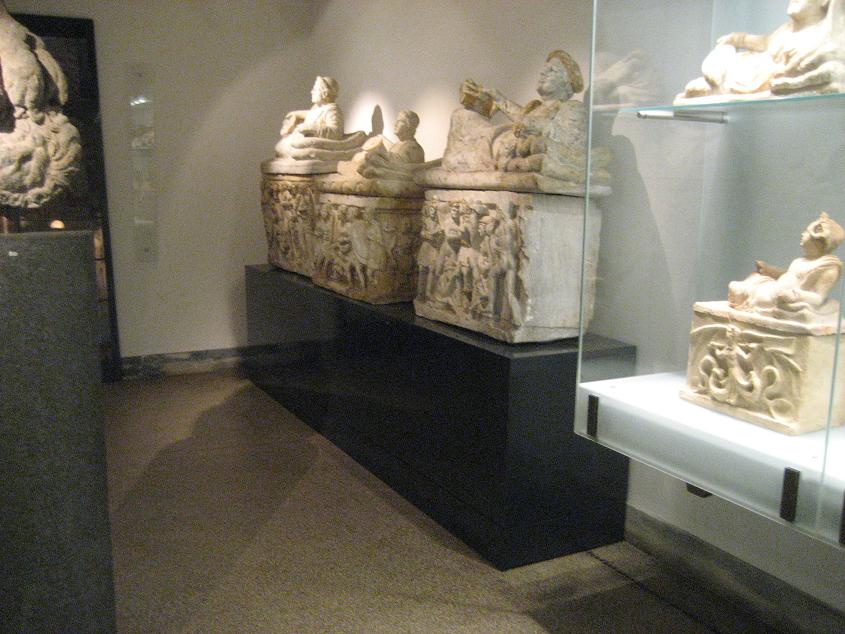
See a larger image
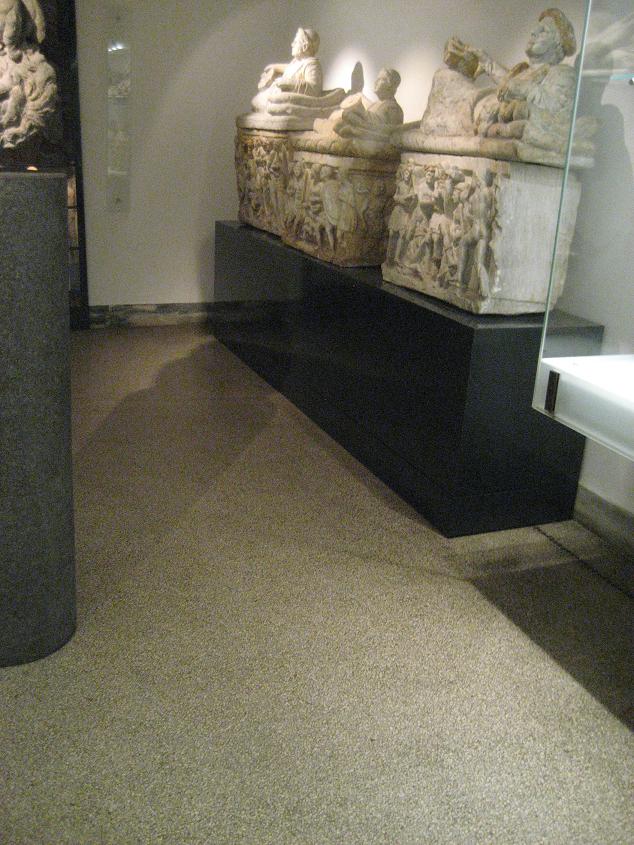
See a larger image
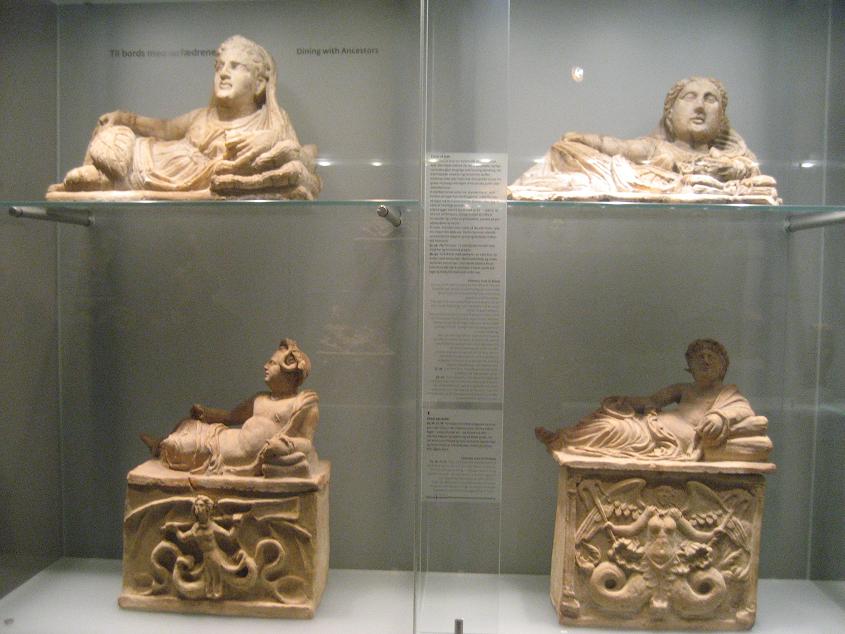
See a larger image
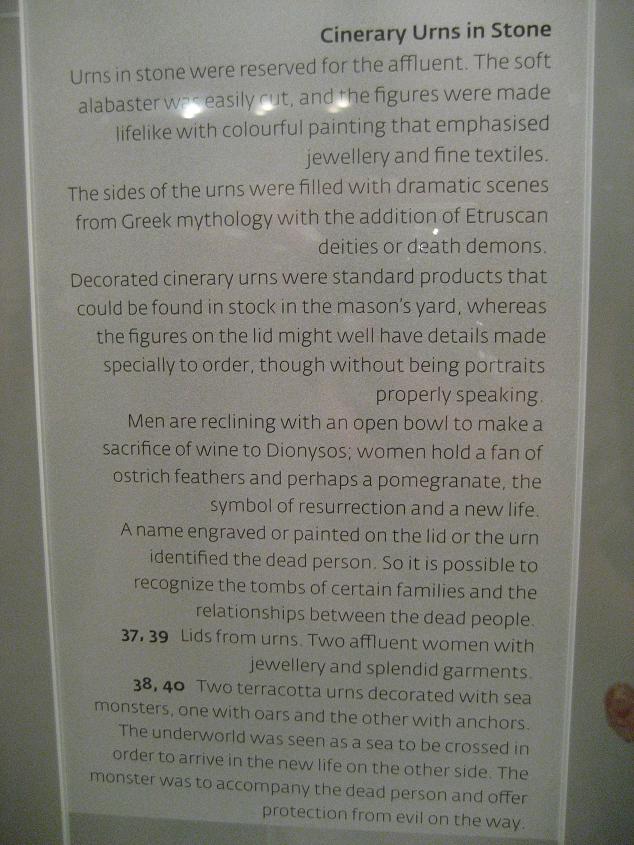
See a larger image
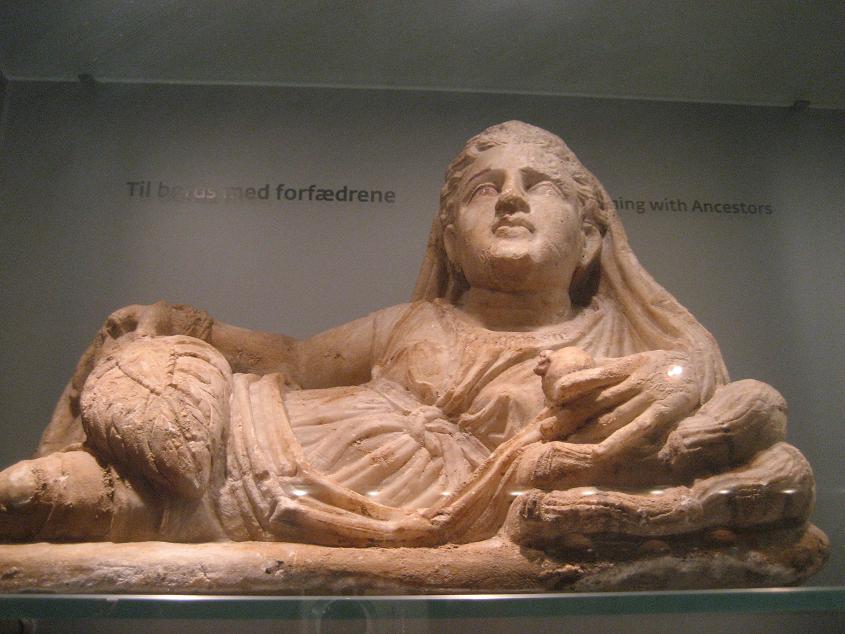
See a larger image
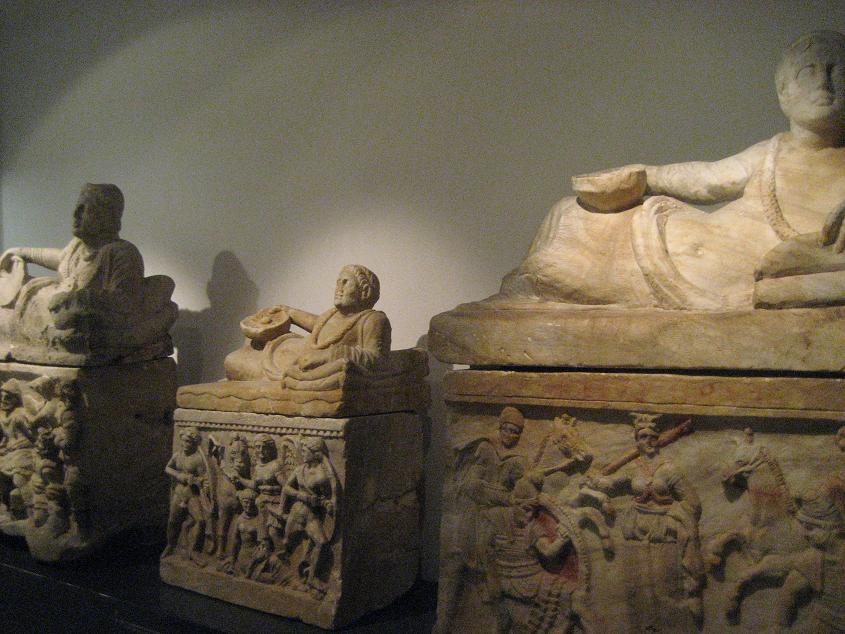
See a larger image
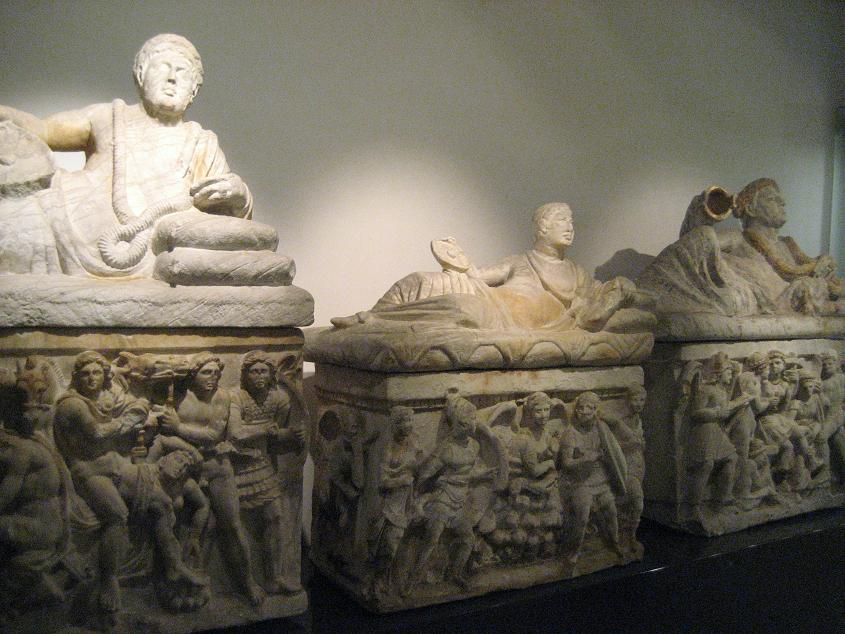
See a larger image
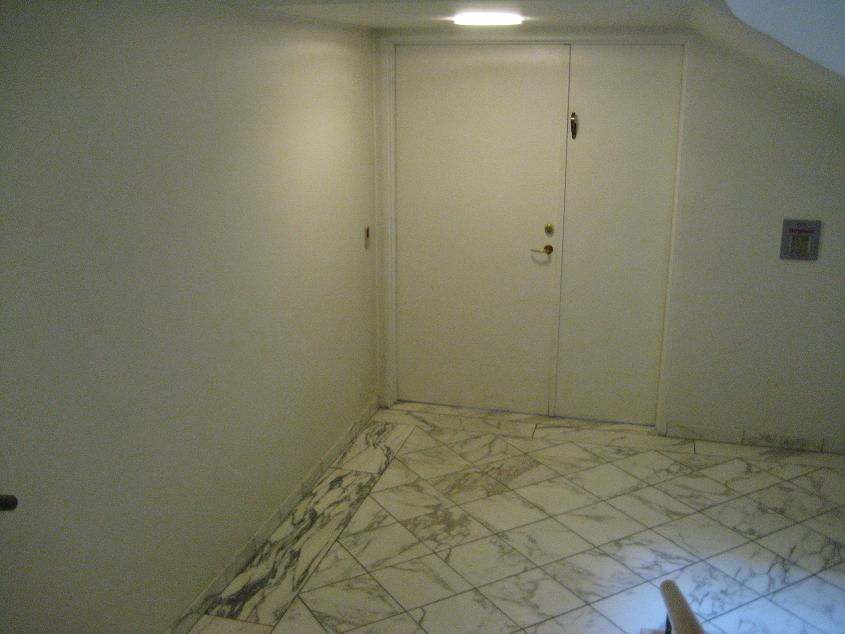
See a larger image